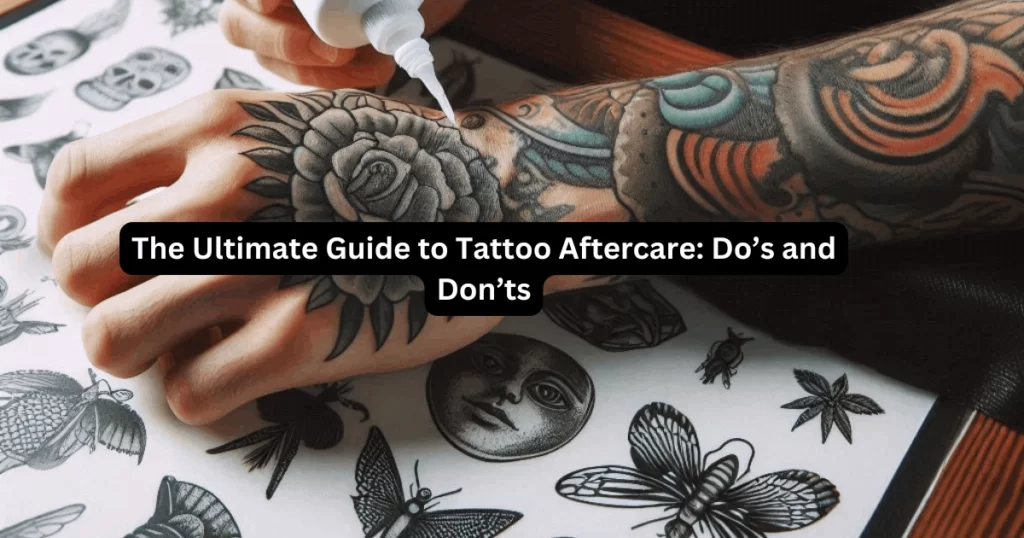The legal age to get a tattoo varies depending on where you live. In many places, you need to be 18 years old.
However, some regions allow minors to get tattoos with parental consent. Knowing the specific laws in your area is important before planning your first tattoo.
Understanding the Legal Age Requirements
Tattoo age laws exist to protect minors. The body is still developing during adolescence, and tattoos are permanent. Governments set these laws to ensure that individuals are mature enough to make informed decisions about body modifications.
United States
In the United States, the legal age for getting a tattoo is generally 18. This age is set by state laws, and most states follow this rule. Some states, like California and New York, allow minors to get tattoos with parental consent.
However, this consent must usually be given in person. The parent or legal guardian may also need to provide proof of their relationship with the minor.
For example, in Idaho, a minor can get a tattoo if a parent is present and gives consent. But in other states like New York, minors can’t get tattoos at all, even with parental approval. Always check your state’s specific regulations.
United Kingdom
In the UK, the law is straightforward. You must be 18 years old to get a tattoo, and there are no exceptions. Even with parental consent, tattoo artists cannot legally ink anyone under 18. This rule is enforced to protect young people from making decisions they might regret later.
Age to Get a Tattoo in Canada
Canada’s tattoo laws vary by province. In some provinces, the minimum age is 18, while others allow minors to get tattoos with parental consent. For example, in British Columbia, there’s no legal age limit, but most studios have their own policies. Many require clients to be at least 18 or have parental consent if younger. In Ontario, you must be 18, with no exceptions.
Australia
Australia’s tattoo laws differ from state to state. In New South Wales and Victoria, you must be 18 to get a tattoo, even with parental consent. In Queensland, minors can get tattoos with parental consent, but the minimum age is 16. In Western Australia, the law is stricter, requiring you to be 18 with no exceptions.
Europe
In Europe, tattoo laws vary widely. Some countries, like Germany and France, allow minors to get tattoos with parental consent. Others, like Spain and Denmark, require you to be 18 regardless of consent. Always research the laws in your specific country before getting a tattoo.
Why Age Restrictions Matter
Age restrictions on tattoos are in place for several reasons. These include physical, emotional, and legal factors. Understanding these reasons can help you appreciate the importance of waiting until you’re of legal age.
Physical Development
The human body continues to grow and change throughout adolescence. Getting a tattoo before your body is fully developed can lead to issues. For instance, as your skin stretches and changes shape, your tattoo might distort. Waiting until you’re older ensures that your tattoo remains as intended.
Emotional Maturity
Tattoos are permanent, and the decision to get one should not be taken lightly. At 18, most people have reached a level of maturity that allows them to make more thoughtful decisions. Younger individuals might choose a design impulsively and later regret it. Age restrictions help prevent these hasty decisions.
Legal Responsibility
When you’re 18, you’re legally an adult in most countries. This means you’re responsible for your actions, including the decision to get a tattoo. If you’re under 18, your parents or guardians are responsible for you. Age restrictions ensure that only those legally capable of making such decisions can get tattoos.
Parental Consent: What It Really Means
In some regions, minors can get tattoos with parental consent. However, this consent isn’t just a simple signature. It involves a process designed to ensure that both the minor and the parent fully understand the decision.
The Consent Process
When a minor wants a tattoo with parental consent, the parent usually needs to be present at the tattoo studio. They may have to sign a consent form and provide identification. The tattoo artist might also ask questions to ensure that the minor understands the permanence of the tattoo. This process is designed to protect the minor and ensure that the decision is well thought out.
Studio Policies
Even in areas where parental consent is allowed, many tattoo studios have their own policies. Some studios won’t tattoo anyone under 18, regardless of consent. This is often due to concerns about the minor’s future regrets or potential legal issues. Tattoo artists also have a moral responsibility to ensure that their clients are making informed decisions.
Risks of Getting a Tattoo at a Young Age
While many teenagers might want a tattoo, there are risks associated with getting inked at a young age. Understanding these risks can help you make a more informed decision.
Health Risks
Young people are more prone to certain health risks associated with tattoos. Their skin is more sensitive, which can lead to complications like infections or allergic reactions. Additionally, minors might not take proper care of their tattoos, leading to issues like scarring or poor healing.
Regret and Removal
Tattoos are permanent, but that doesn’t mean you can’t regret them. Many people who get tattoos as teenagers wish they hadn’t. Tattoo removal is an option, but it’s expensive, painful, and time-consuming. Waiting until you’re older can help prevent this regret.
Impact on Future Opportunities
While tattoos are becoming more accepted, they can still impact your future. Certain professions may frown upon visible tattoos, especially if they’re in prominent places like the hands, neck, or face. Getting a tattoo as a minor might limit your future opportunities, so it’s important to consider this before making a decision.
Making the Decision: Is It Worth the Wait?
If you’re under 18 and eager to get a tattoo, it might be worth waiting. The age restrictions are there for a reason, and waiting until you’re legally allowed can lead to better outcomes.
Time to Think
Waiting gives you time to think about your decision. You can explore different designs, artists, and placements. You’ll also have time to consider how a tattoo might affect your future. By waiting, you’re more likely to make a decision you won’t regret.
Finding the Right Artist
Finding the right tattoo artist is crucial. By waiting until you’re of legal age, you’ll have more time to research and choose an artist whose style matches your vision. You’ll also be able to visit studios, ask questions, and ensure that you’re comfortable with your choice.
Avoiding Legal Issues
Getting a tattoo before you’re of legal age can lead to legal issues for both you and the tattoo artist. In some places, it’s illegal to tattoo minors, even with parental consent. By waiting until you’re 18, you’ll avoid these potential problems and ensure that your tattoo experience is legal and safe.
Patience Pays Off
In most places, you need to be 18 to get a tattoo. Some areas allow minors to get tattoos with parental consent, but this often involves strict guidelines. The age restrictions are there to protect you from making a decision you might regret later.
Waiting until you’re of legal age gives you time to think, plan, and make a decision that you’ll be happy with for the rest of your life. Tattoos are permanent, so it’s worth taking the time to ensure that you’re fully ready for this commitment. After all, patience pays off.




